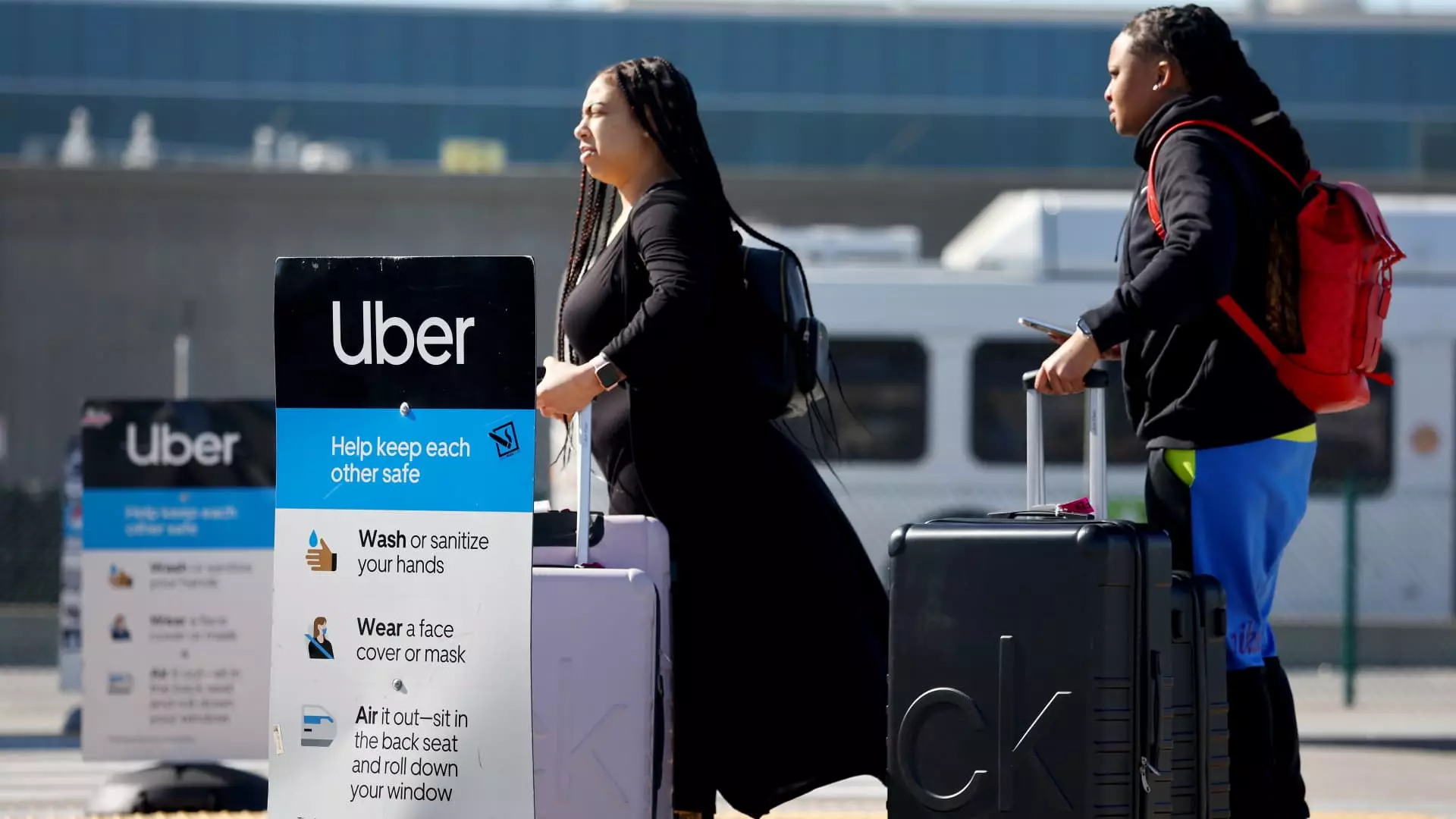In a strategic move to enhance its loyalty program, Delta Air Lines has announced a new partnership with Uber, marking the end of its collaboration with Lyft after an eight-year tenure. This shift represents a significant shift in how airlines and ride-hailing services can work together to benefit frequent travelers. As travel surges return post-pandemic, Delta aims to streamline the airport experience for its SkyMiles members while leveraging the expansive reach of Uber’s services.
Effective this spring, SkyMiles members will be able to accumulate miles for their Uber expenses, a feature that is expected to increase user engagement with both Delta and Uber platforms. Delta customers can earn one mile for every dollar spent on UberX rides to airports, two miles for rides in higher-end options like Uber Comfort and Uber Black, and three miles for selecting Uber Reserve, a service that allows passengers to book luxury rides in advance. Moreover, Uber Eats orders exceeding $40 will enable consumers to earn one sky mile per dollar as well, creating additional avenues for passengers to accumulate benefits even when they are not in transit.
The new initiative is aimed at making travel as seamless as possible for customers who expect efficiency and convenience in their travel experiences. Uber CEO Dara Khosrowshahi emphasized this commitment, stating that the partnership could transform the airport journey into a far more attractive proposition for travelers.
The Shift from Lyft to Uber
While Delta’s decision to cut ties with Lyft remains officially unexplained, the transition appears to stem from several strategic insights. Delta has built significant ties with American Express, which offers certain cardholders credits for Uber services, suggesting a possibility for enhanced financial benefits in its new alliance with Uber, especially as it eyes potential profit from the partnership.
Lyft, meanwhile, has not been silent regarding the split. In a recent statement, the ride-hailing company expressed gratitude for its years with Delta and mentioned its ongoing relationships with various other companies. These include partnerships with Alaska Airlines, Chase, DoorDash, Mastercard, and others, illustrating Lyft’s commitment to diversifying its business affiliations to maintain loyalty and customer service.
Expanding Loyalty Programs in the Airline Industry
The reshaping of loyalty programs in the airline industry reflects broader trends. As more travelers emerge from the constraints of the pandemic, airlines are focusing on enriching customer experiences. The lucrative nature of frequent flyer miles has driven alliances with various sectors to enhance offerings. Apart from Uber, Delta has established partnerships with brands like Starbucks, Hertz, and Ticketmaster, enabling customers to earn miles on a wide range of everyday activities, thus integrating points accumulation into their daily lives.
The announcement also comes at a time when the airline industry is grappling with rapidly changing customer preferences, making such partnerships more critical than ever. Delta appears committed to leveraging technology and customer experience to maintain its competitive edge.
In the broader context, Delta faces a compelling rivalry not only amongst airline competitors but also within the ride-hailing sector. Lyft currently boasts a healthy user base, with 24.4 million riders logged at the end of the third quarter, but its ride volume has been dwarfed by Uber’s 161 million active users, who utilize both ride-hailing and food delivery services. The sheer scale of Uber’s operations is likely a significant factor in Delta’s decision to partner with the company, as it would enhance Delta’s visibility among a larger audience.
Lyft’s recent growth trajectories are commendable, but its smaller market position compared to Uber makes it less attractive as a primary partner for Delta at this moment. With Delta also making strides in integrating technology, such as launching an AI-powered assistant and upgrading in-flight entertainment, the synergy with a tech giant like Uber appears to present richer opportunities for enhancing customer experiences.
Ultimately, this pivot from Lyft to Uber underlines the ever-changing landscape of travel partnerships and the necessity for companies to align with those that best meet their strategic needs. As Delta moves forward with Uber, travelers can expect innovative offerings that leverage modern technology to redefine the air travel experience.

